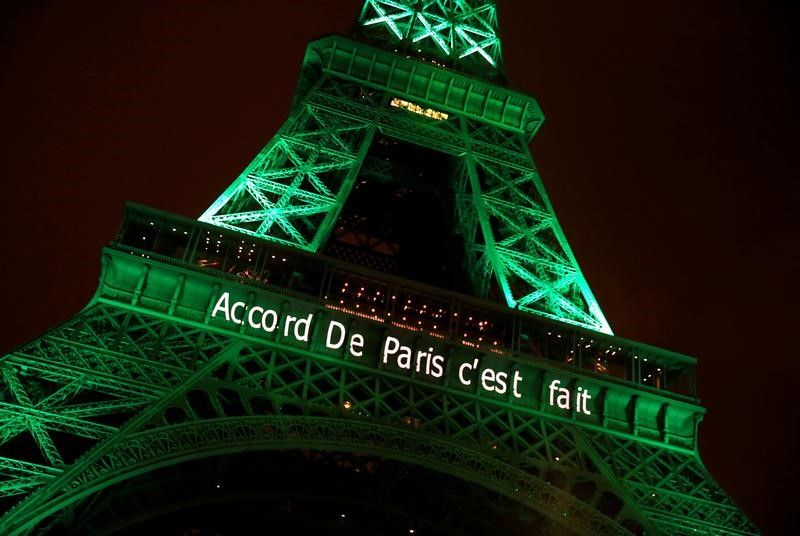
Efforts to build a new global deal to tackle climate change were for many years criticized for moving at a glacial pace. But this week climate negotiators meeting in Morocco find themselves facing an entirely new problem: a deal that, astonishingly, has come into effect more than three years ahead of schedule.
The Paris Agreement on climate change, designed to start in 2020, entered into force on Friday, a month after reaching key ratification thresholds. On Sunday, the United Nations said 100 parties—99 countries and the European Union—had formally joined the accord. Its swift entry into force has been a cause for celebration—and some puzzlement.
"We're now in an interesting conundrum we never thought we'd find ourselves in: After pushing for decisive and speedy action, we got it," said Paula Caballero, global director of the climate program at the Washington-based World Resources Institute (WRI).
The immediate challenge for negotiators is that, by law, countries that have ratified the deal must start agreeing the rules to implement it at the next U.N. climate conference. But that meeting starts on Monday in Marrakesh. That has left officials a very short time to iron out a host of technical issues—and only about half the parties that crafted the Paris deal eligible to participate in the early decision-making.
"Because we've jump-started the (deal), we now have to find a way for negotiators to discuss the rules while still finding ways for other countries to come in and join," said Liz Gallagher, a climate diplomacy expert at London-based E3G, a sustainable-development think tank.
But that is "a good problem to have", she said. "It's the first time we really feel the urgency in the negotiations is reflected."
TRUMP EFFECT
The rapid approval of the agreement—one of the fastest in the history of international deal-making—has happened in large part because a growing number of countries feel the urgency of taking swift action to deal with climate change and its worsening impacts, while big climate polluters such as China and the United States have jointly stepped up to push the deal.
But many nations also have an anxious eye on this week's U.S. elections, where Republican presidential candidate Donald Trump has promised to pull his country out of the climate agreement if elected, analysts said.
That threat, in recent months, has spurred a rush to ratify the agreement and ensure it takes force before the U.S. vote.
Under the rules of the Paris Agreement, once it has come into effect, "legally a country cannot withdraw before the next five years are over," said Sven Harmeling, international climate change policy coordinator for the aid agency CARE.
The quick ratification of the global climate deal, however, will likely require a bit of procedural fancy footwork at the Nov. 7-18 U.N. climate talks.
Negotiators, for instance, likely will open the first meeting of the governing body of the Paris Agreement and then suspend it very soon after until 2017, or more likely 2018, said Ulriikka Aarnio, international policy coordinator for Climate Action Network Europe.
Talks can then continue but no decisions will need to be made until the suspension is lifted, she said. As only countries that have ratified the agreement can vote on the rules, the suspension could spur countries that have not yet passed the deal to do so quickly, she and others said.
"We need to find a way to ensure that the inclusiveness that has been at the core of the agreement is maintained, so that all countries that want to ratify and haven't been able to do so are able to fully participate in the rule-making process," said WRI's Caballero.
Uncommon Knowledge
Newsweek is committed to challenging conventional wisdom and finding connections in the search for common ground.
Newsweek is committed to challenging conventional wisdom and finding connections in the search for common ground.
About the writer
To read how Newsweek uses AI as a newsroom tool, Click here.








